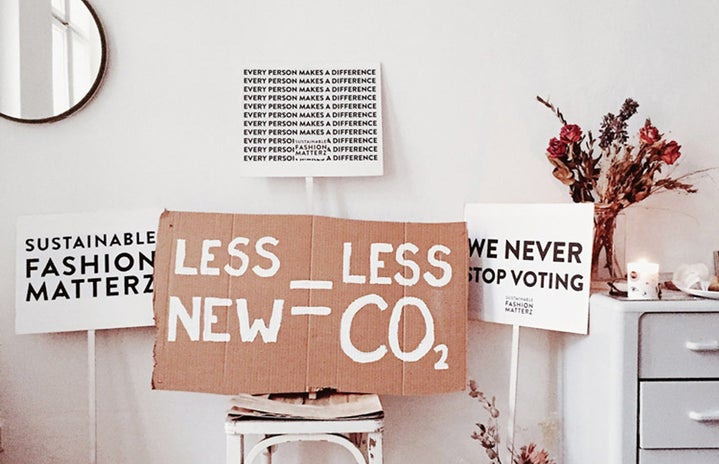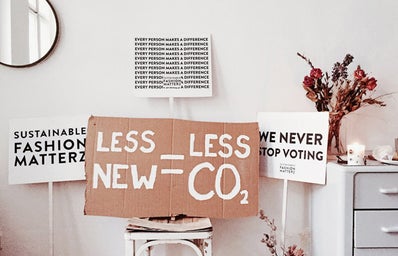Recycling, zero net solutions, zero waste, carbon neutral, you’ve probably heard these concepts before. Sustainable development and all that comes with it is becoming bigger and bigger. And this means a change in our behavior.
Since the 70s we have known about global warming and its consequences to both the planet and society, however only in recent years, mainly due to the work of activists and the efforts of NGOs, have businesses and people in general taken action.
This means that the number of sustainable solutions, products and services, is increasing. And for us girlies, this means shopping consciously, saving our money and staying on trend. Do you really need anything else?
In this article I’m going to break down a few habits that you can change, in order to live a more environmentally conscious life and also save a few bucks.
Overconsumption
The influencer’s Amazon storefronts and the trendy products on TikTok that you only use once have to be left behind. You see a video of someone using a new outfit, a gadget to charge all your electronics at once, or a device to put in your kitchen and think your life will not be complete until you buy it. I’m here to try to convince you otherwise.
There will always be new (useless) products every day. And people will keep advertising it because it’s their job and they make money out of the people buying these things. But you will never be satisfied, because you will inevitably have to buy the next thing that appears and is trending.
Looking at the long run, this is really not sustainable, to the planet and your bank account. To get out of this loop, the next time you see something ask yourself these questions:
- Why do I want to buy this? Is it just because it looks appealing?
- Do I already have a similar product?
- In a month will I still want it?
If by the end of these three questions (and be honest with yourself) you truly still want to buy it then there are better options out there, and quite cheap.
Second hand
Today it is not hard to find a thrift shop with tons of different options of clothes, accessories, decorations and even furniture. Buying second hand, not just clothes but everything, is always a win win.
We all know that trends are always going back to different decades and referencing past fashion. And what better place to find vintage clothes than a place that sells clothes bought in the past? I know you have seen people on TikTok doing a thrift haul, so it’s time for you to go out and explore this amazing type of business.
Besides that, almost all of these shops let you trade in your clothes for money or credit to purchase something. So, not only can you buy cute cheap outfits, but you can sell your clothes and earn money!
And obviously lest not forget how this type of clothing shopping is waaaay more sustainable to our planet, considering that every year 92 million tons (yes tons) of textile waste is produced.
conscious period
At first glance people find reusable tampons, period underwear and period cups a little daunting and even unhygienic. Or say that they are too expensive and prefer to use disposable pads and tampons. However, this is a misconception and these are better options for our body, the planet and our wallet.
Conventional pads and tampons have in their composition many chemical substances, like dioxin – which is linked to cancer and hormonal imbalances -; pesticides; and fragrances with harmful components. And obviously, tampons and pads are in contact with one of the most sensible and absorbent part of our body.
Another important information. A survey conducted by OnePoll and commissioned by INTIMA showed that on average a woman spends $6000 with conventional menstrual products. What about the sustainable options? Well, one menstrual cup is equivalent to 2000 pads and a period underwear can be used for 3 years. So you make the calculations.
And lastly but not least, during a woman’s reproductive lifetime on average 330 pounds of trash is produced. This means piles and piles of menstrual products every year.


